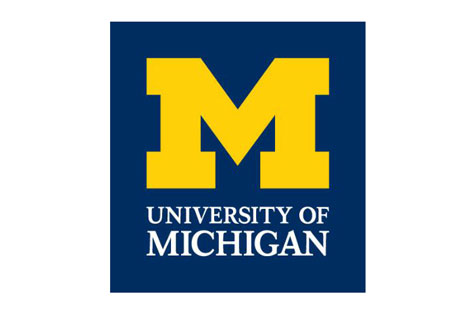 Today DDN announced a new data management solution developed and deployed at the University of Michigan that will help support an increasingly diverse set of research projects spanning machine learning, transportation, precision health, chemistry, computational flow dynamics, life sciences, physics and public policy.
Today DDN announced a new data management solution developed and deployed at the University of Michigan that will help support an increasingly diverse set of research projects spanning machine learning, transportation, precision health, chemistry, computational flow dynamics, life sciences, physics and public policy.
DDN storage is performance-optimized and able to handle large volumes of data,” said ARC-TS director Brock Palen. “We can scale DDN storage capacity in small increments to reduce cost, while maintaining the ability to grow to more than 1,700 drives behind a single pair of controllers and meeting rigorous performance requirements—that’s pretty unusual in the industry.”
U-M’s Advanced Research Computing – Technology Services (ARC-TS) unit has seen demand for research storage surge. With more than 4,000 students and faculty working on approximately 370 independent data-intensive projects annually, storage needs have grown beyond 14PB. Moreover, an increase in diversified areas of study has caused demand to grow 100 percent annually over the past three years, which taxed ARC-TS’s ability to address the rise in data volume and computational complexity.
As data volumes climbed, ARC-TS sought storage that could handle large file sizes, especially massive raw video files and sensor data produced by Mcity, a one-of-a-kind urban test facility for connected and automated vehicles. The University has deployed two driverless shuttles on campus, which requires not only collection of data from each shuttle, but also the monitoring of how passengers interact in an environment where there is no human driver.
Separately, large image datasets are being generated by electron microscopy, and the university-wide Precision Health initiative is applying genomic, epigenetic and public policy research to better understand the risk factors associated with long-term opioid use and abuse. To provide researchers with storage to support these burgeoning research areas, ARC-TS chose a 5PB DDN storage solution that provides the ability to scale as workloads increase.
The result is the Locker Large-File Storage service, a cost optimized, high-capacity service that provides high performance for large files, and allows investigators across U-M to connect their data to computing resources necessary for their research, including U-M’s HPC clusters.
DDN’s support for native encryption is allowing ARC-TS to work toward storing sensitive personal health data to support U-M’s varied life sciences research and precision health projects.
Thanks to DDN, we can help our faculty to budget for the storage performance they need to support major breakthroughs across all types of research,” Palen said.
ARC-TS plans to continue to grow the Locker Large-File Storage service to address expanding research storage requirements.
Data-intensive organizations choose DDN to create the right-size building blocks for their environment,” said Paul Bloch, president and co-founder of DDN. “The University of Michigan is conducting pioneering research across varying workflows and multiple disciplines, so they need to grow storage quickly, reliably and securely. Researchers using the Locker service can move forward with the peace of mind that their storage is optimized to handle the most demanding machine learning and research workloads.”




